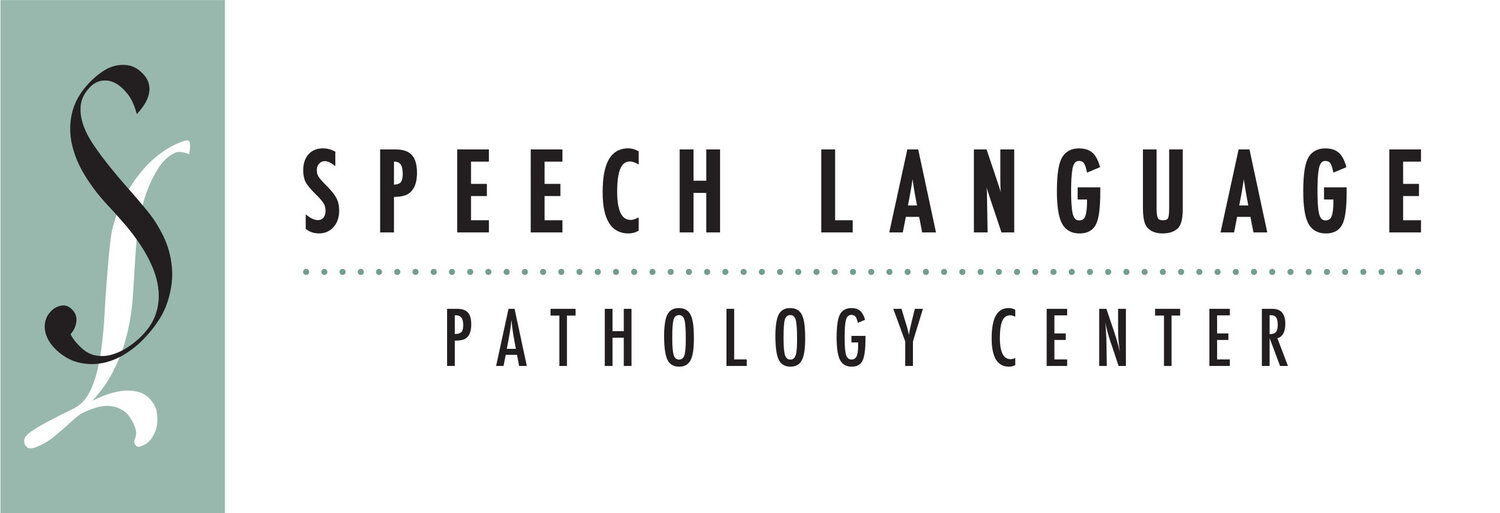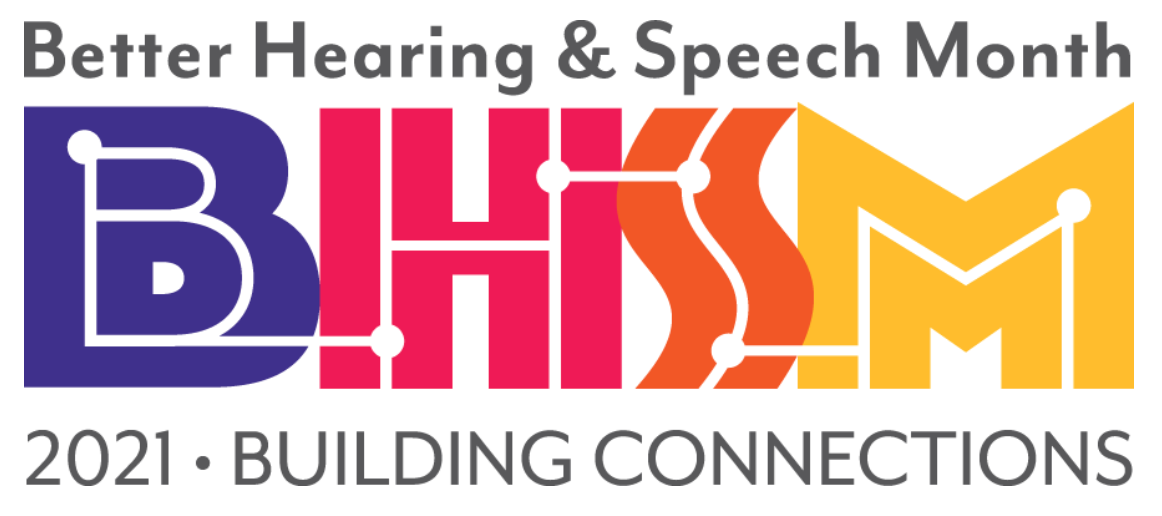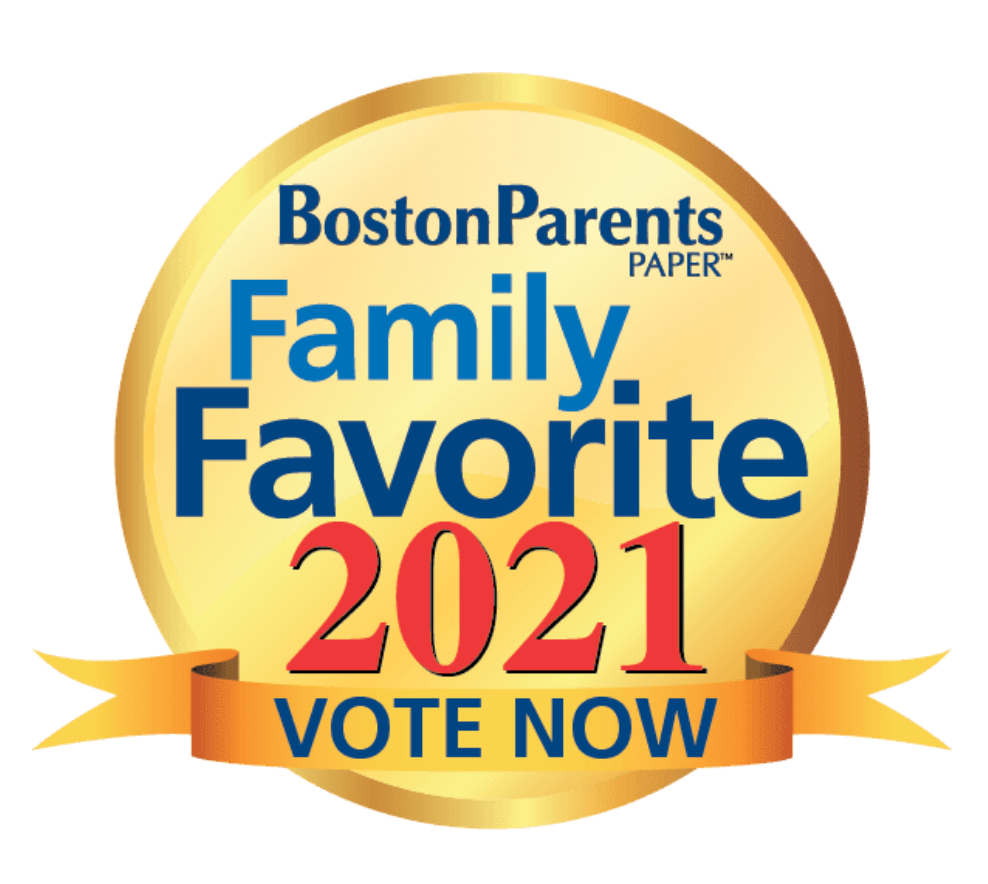Each year, the American Speech and Hearing Association (ASHA) uses the month of May to educate and raise awareness for individuals with communication disorders. Our team at the SLP Center work tirelessly to stayed informed and provide our families with the most current and relevant information possible! Click the link below for communication milestones with tips for ages 0-5! And stay tuned for more resources to come this BHSM!
VOTE NOW! SLP Center is a Finalist for Family Favorites of 2021!
Thanks to your support, the Speech Language Pathology Center of Norwell is a top nominee! Please go to the following link to cast your final vote at “Boston Parent Paper’s Best”. Final voting is open until May 17th!
Click "Health" then "Speech Language Therapy". You'll see SLP Center listed alphabetically! Simply click to vote. We appreciate you taking a minute out of your day to help spread the word about our commitment to families in need of speech and feeding therapy! This was a challenging year and we are honored!
Activities to get outside this spring!
“It’s been a long winter, made even longer by the coronavirus pandemic closures that canceled many indoor events. But spring is finally here, and the warmer weather is opening up plenty of possibilities for outdoor activities across Massachusetts.”
April Vacation - We're OPEN!
Note to families! April vacation is coming up, but our office will be open and operating normal business hours. If you need any changes to your schedule, please let us know!
Happy Spring!
AAC Discounts for Autism Acceptance Month 2021!
“Access to communication is a right that has been eroded in the stress of the pandemic. That’s why to mark Autism Acceptance Month this year; we will offer our traditional discount of 50% off to more products for an extended period.”
This discount is included for their AAC applications including Proloquo2Go, the Gateway vocabulary, Proloquo4Text, Keeble, and Pictello.
Speech and Language Enrichment Activities - Play Dough!
Welcome to the SLP Center’s Home Enrichment series! These daily activities are designed to promote home carryover of your child’s speech and language therapy goals. Each post includes a description of the activity and the tie-in to general speech and language therapy goals (including articulation, receptive/expressive language, etc.). We’ll be posting a new activity every evening. We hope you have fun!
Homemade Play-Dough
Homemade play-dough offers so many opportunities to target your child’s speech and language goals! Your child will benefit from both making the play-dough and playing with it later!
Ingredients: 1 cup of flour (whatever kind you have on hand), ¼ cup of salt, 1 Tbsp cream of tartar (optional), ½ cup of warm water, 5 drops of food coloring
Instructions:
1. Mix together the flour, salt, and cream of tartar.
2. Mix together ½ cup of warm water with a few drops of food coloring.
3. Slowly pour the water into the flour mixture, stirring as you pour. Stir until combined, then knead with your hands until the flour is completely absorbed. If the dough is too sticky, add more flour until it doesn’t stick at all.
4. Repeat process for whichever colors you want to make.
Speech and Language Connections:
Articulation – while making and playing with the play-dough, keep an ear open for any words containing the speech sound your child is currently working on in therapy. Some examples include: roll, red, ready for targeting "r" or spoon, spill, stir for targeting consonant blends. It would be easy to target speech pacing and multi-syllable words (e.g.: measuring cup, mixing bowl, food coloring). Play activities are a great opportunity to target difficult speech sounds in a stress-free, natural environment.
Sequencing – review the steps of making the play-dough with your child, and see if they can help figure out the next step while you are making it! Try to have the child use full sentences and incorporate transition words like "first" and "next".
Expressive language – describe the play-dough (e.g. how it looks, feels, smells, etc.). Once the play-dough is made, try molding it into different shapes/objects and have your child name them!
Following directions – have your child follow 1, 2, or 3 step directions while making or molding the play-dough (e.g. "roll it" or "roll it into a ball and then throw it to me").
What EXACTLY does a Speech Pathologist do?
“Speech-Language Pathologist. Speech Pathologist. Speech Teacher. Known by many names, people refer to these specialists most often as speech therapists. They work with children with a variety of delays and disorders spanning from mild articulation delays to more complex disorders such as autism, Down syndrome, hearing impairment, motor speech disorders, and other developmental delays.
SLP’s, as they are called for short, are the specialists that help your child with speech, talking and communication. However, you may be surprised at how broad this field of speech-language pathology really is and just how many skill areas SLPs are trained to build and expand in young children.”
If you or someone you know could benefit from any of these services, a therapist would be happy to speak with you further! Call our office at 781-792-2700.
5 Senses Winter Scavenger Hunt
Bundle up and bring your five senses for this winter scavenger hunt! Use your eyes, ears, nose, and hands for an outside adventure in your own backyard.
Click on the link below to get the free printables. Or, get creative and make your own!
What is Aphasia?
“It’s a language disorder that affects your ability to communicate. It’s most often caused by strokes in the left side of the brain that control speech and language.
People with aphasia may struggle with communicating in daily activities at home, socially or at work. They may also feel isolated.
Aphasia doesn’t affect intelligence. Stroke survivors remain mentally alert, even though their speech may be jumbled, fragmented or hard to understand.”
Valentine Heart Activity
Busy Toddler created a fun and festive activity for Valentine’s Day! Crafts are great for hands on learning and language development. Have your child use their executive function skills (e.g organizing materials, planning out activity) following directions skills (e.g. paint the heart red), or incorporate speech sounds (e.g. try your /s/ sounds 3 times and then paint a heart) for this activity. Check out Busy Toddler’s site for materials and directions on how to complete the activity. She also has a great Instagram for tons of other fun ideas, too!
February Vacation - We're OPEN!
Friendly reminder to all families — we will be OPEN for the entire week of February vacation, including Monday, the 15th! Should you need any adjustments to your schedule, please give the office a call!
Wonderful Winter Activities
Beat the winter blues with these fun winter activities for children! Craft activities have a duel purpose of keeping small hands busy and targeting speech/language goals. Use crafting as an opportunity to increase vocabulary exposure, promote following directions, encourage verbal requests, and more! Follow the link below and have a (snow) ball!
Making Speech “Homework” Fun!
“Life is busy! That’s why it’s so important to find functional – and fun! – ways to elicit speech and language in your home. Board games target speech, language, and social skills while also offering a fun time for family bonding.”
Click here for ideas on how you can target your child’s speech and language goals while playing games you have at home:
Facilitating Speech and Language Skills at Home
At the SLP Center, we know that working on speech and language skills outside of therapy sessions is critical for skill generalization! Current research supports shorter, more frequent practice across daily environments to help facilitate progress and carryover of skills. We’re here to help you with that!
Our speech therapists can provide you with a variety of resources, handouts, and recommendations to help you target speech-language goals at home, on the playground, in the classroom, and beyond.
Talk to your child’s therapist about ways to bring speech and language practice into your everyday routine! You can learn more about home activities to foster speech and language development at the link below.
Keeping Conversation Going During Virtual Holiday Gatherings
Technology can enhance communication and connection, as audiologists and SLPs well know. Here are some tips for a successful virtual holiday gathering:
Set expectations. Agree to certain parameters in advance, such as what time you’ll start and how long you’ll stay online together. Video calls can tire people out faster than in-person gatherings, especially young children or people with communication disorders. Understanding timing can help reduce stress and conflict—allowing everyone to enjoy one another’s company.
Plan conversation-starters or games to keep everyone involved. Designate one person to prepare conversation-starters (Family Dinner Project provides great suggestions). Other ideas include a word game (such as Table Talk or Madlibs), a virtual scavenger hunt—find your favorite family photo and show it to everyone—or a family trivia game (people can use the “raise hand” or “like” features within virtual platforms to answer questions or use free tools like Kahoot).
Keep important traditions alive. Tweak special customs for virtual settings. For example, rather than going around the table and asking what each person is thankful for, collect responses ahead of time in a gratefulness jar to read out loud. Or do a show and tell—bring an item representing what you’re thankful for this year. This might allow for more creativity.
Accommodate family members with different communication needs. Many older adults have some degree of hearing loss—consider modifications to help them stay engaged. For example, seating them closer to the computer or speakers, turning on closed-captioning, and projecting your meeting on a larger screen to allow better access to visual cues—such as seeing speakers’ facial expressions—can all make a world of difference. In addition, online meetings might feel long, overstimulating, or otherwise challenging for children with autism, ADHD, or a speech or language disorder.
Communicate respectfully. Give everyone a chance to speak, try not to talk over others, and limit side conversations during your gathering. This might be more difficult with everyone in different locations but doing so will make the experience better for everyone.
While this will be the most high-tech holiday season yet, families don’t need to go overboard on device use at the dinner table. Stash away individual phones and tablets for the meal so they don’t distract from the main gathering.
By: Diane Paul, Regina Escano Zappi
Happy Holidays from SLP Center!
Sending warm wishes to all for a happy and healthy holiday season!
Please Note: The SLP Center will be closed from Thursday, December 24th through Sunday, January 3rd. We will reopen on Monday, January 4th! You can reach us through the contact page on our website should you need anything. Thank you!
SLPC's Clinicians Get Into The Holiday Spirit!
The clinicians from the SLP Center spent some time team building and getting into the holiday spirit. Big thanks to Barbara Fearing who lead a fun ornament craft for the team. It’s been a hard year for all and it was great fun to set aside some time to get creative! We hope this holiday season brings rest, relaxation, and plenty of fun to you and yours!
Best Toys to Grow With Your Child!
Play is the work of childhood and toys are the tools for play. Therefore, when the holiday season comes along its important to find toys that can grow with your child. This is where open-ended toys come into play!
“Toys can be lumped into two categories: ‘one and done toys’ and ‘open-ended toys’. One and Done Toys do the playing for kids. They do the imagining. They do the talking. A toy that needs 57 batteries to sing the ABCs to your 1 year old is a toy you want to run away from. Because those toys are there to entertain your child - instead of your child entertaining themselves. Open-ended toys teach kids. They teach them to imagine. To create. To problem solve. To practice life skills and social skills. Our kids learn best through play – we need them playing with the “right” equipment.”
Busy Toddler compiled a great list of 100+ open-ended toys that grow with kids! Check their site and Instagram for tons of other fun ideas, too! Visit their website here!
Reading Tips for Parents of Toddlers
You may have heard many times (especially from us speech therapists!) that one of the best activities you can do with your toddler is reading. Reading with your toddler helps with vocabulary expansion, stringing words together into sentences, sustained attention, and pre-literacy skills – such as holding the book upright or turning the pages of the book. However, you may question how possible it is to read a whole book with your active and curious child! Check out the link below for some helpful reading tips for parents. Happy reading!
Best Gifts for Kids to Promote Better Eating
“Looking for double-duty holiday gifts? You know, the ones that are fun to open, but also are 100% practical and make your parent-life easier? When kids have fun with food it reduces pressure. The first step to getting them to try new foods! A novel and exciting gift for them, a long term win for you. Here’s my go-to list of top gifts that will help your child eat better. They also pave the way for family mealtime bonding!”




















